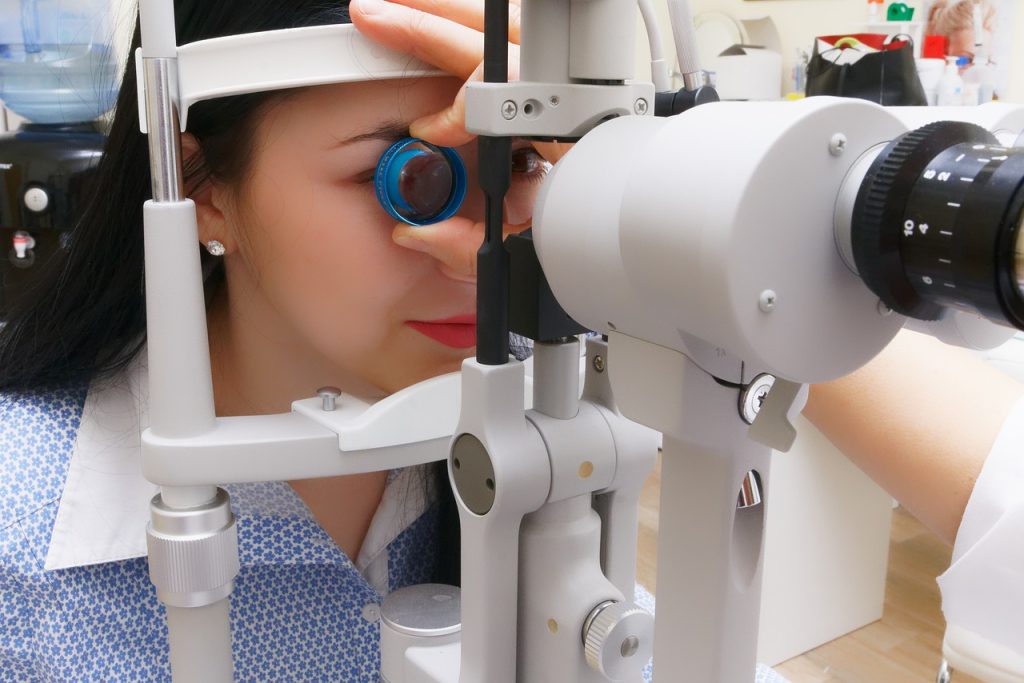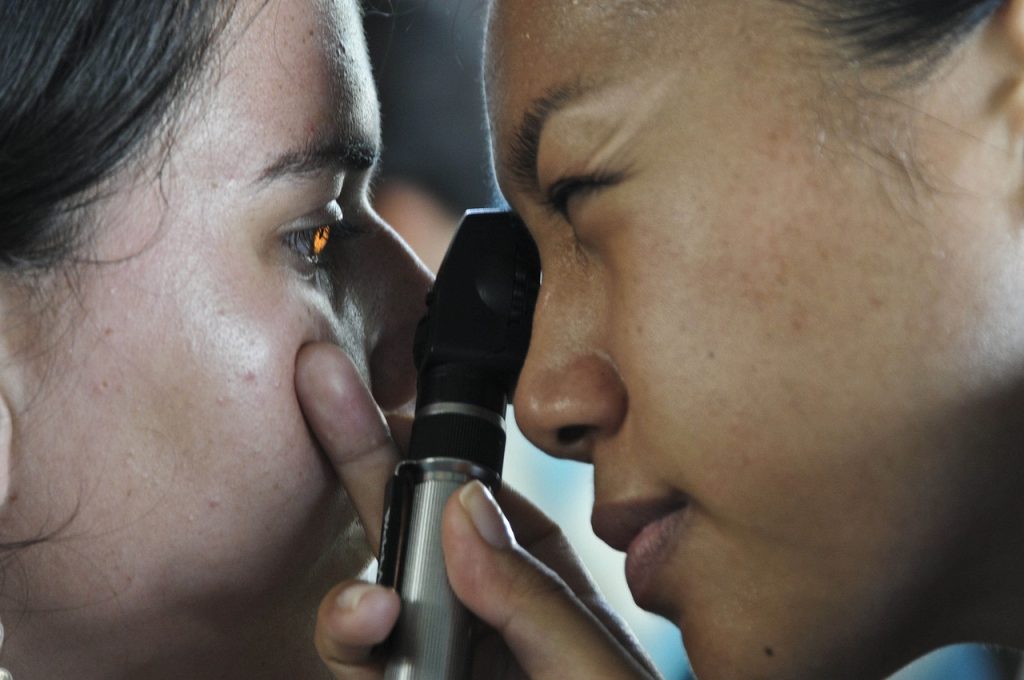
Regular comprehensive eye exams are an essential aspect of proactive healthcare, contributing to maintaining optimal eye health and identifying potential vision problems at an early stage. The significance of these exams cannot be overstated, as they go beyond simple vision screenings and encompass a thorough evaluation of various aspects of your eye health. In this comprehensive guide, we will explore the importance of prioritizing your vision care by understanding the significance of comprehensive eye exams and the specific benefits of undergoing a full eye test.

Regardless of whether you are due for an eye exam or contemplating scheduling one, this article aims to provide valuable insights and information to help you make informed decisions about your vision health. We will delve into the reasons why comprehensive eye exams are necessary, the specific assessments conducted during a full eye test, and the advantages of early detection and prevention of eye conditions.
By emphasizing the importance of regular comprehensive eye exams, we aim to raise awareness about the critical role they play in preserving eye health and ensuring clear vision. Whether you are seeking to address existing vision concerns or proactively monitor your eye health, this guide will equip you with the knowledge and understanding necessary to prioritize your vision care effectively.
Remember, your eyes are precious, and taking proactive measures to maintain their health is crucial. By investing in regular comprehensive eye exams and understanding the benefits of a full eye test, you are making a valuable commitment to your overall well-being and ensuring that your vision remains sharp and clear.
Why You Need a Comprehensive Eye Exam
When it comes to your eye health, a comprehensive eye exam is a crucial step in ensuring optimal vision and detecting potential problems. Unlike a basic vision screening, a comprehensive eye exam provides a thorough evaluation of various aspects of your eye health. It goes beyond simply assessing visual acuity and delves into a comprehensive assessment of your overall eye condition.
During a comprehensive eye exam, eye care professionals evaluate factors such as visual acuity, which measures how well you can see at various distances. They also assess eye pressure, checking for signs of glaucoma, a condition that can lead to vision loss if left untreated. Eye muscle function is examined to assess how well your eyes work together and coordinate, which is essential for proper depth perception and eye alignment.

Moreover, a comprehensive eye exam includes an evaluation of your overall eye structure. This involves examining the various parts of your eye, such as the cornea, lens, retina, and optic nerve. By thoroughly examining these structures, eye care professionals can identify any abnormalities or signs of eye diseases, including cataracts, macular degeneration, or diabetic retinopathy.
The comprehensive nature of the exam enables eye care professionals to detect potential issues early on, even before symptoms manifest. Early detection is crucial for successful treatment and management of eye conditions, as it allows for timely interventions to prevent further damage and preserve your vision.
The Benefits of a Full Eye Test
When it comes to evaluating your eye health comprehensively, a full eye test offers numerous benefits. This type of comprehensive eye exam encompasses a wide range of assessments designed to provide a thorough evaluation of your vision and eye health.
One of the key components of a full eye test is refraction. This test determines your eyeglass prescription, allowing your eye care professional to accurately correct any refractive errors you may have, such as nearsightedness, farsightedness, or astigmatism. By obtaining the correct prescription, you can enjoy improved vision clarity and alleviate any associated eye strain or discomfort.
Visual field testing is another vital aspect of a full eye test. It assesses your peripheral vision, which is essential for daily activities like driving and spatial awareness. By evaluating your visual field, eye care professionals can detect any abnormalities or signs of conditions like glaucoma, which often affects peripheral vision before causing noticeable symptoms. Early detection of such conditions allows for timely interventions to prevent vision loss and preserve your eye health.
Additionally, a full eye test includes ocular health evaluations. These assessments focus on examining the overall health of your eyes, including the structures within them. Ocular health evaluations can detect conditions such as cataracts, macular degeneration, and diabetic retinopathy. Detecting these conditions early enables prompt treatment and management, helping to preserve your vision and prevent further deterioration.
By undergoing a full eye test, you gain a comprehensive understanding of your eye health status. Any potential concerns can be promptly addressed, and appropriate measures can be taken to manage and treat any detected conditions. Regular full eye tests are crucial for maintaining optimal eye health, ensuring clear vision, and safeguarding the long-term well-being of your eyes.
Early Detection and Prevention
Comprehensive eye exams are instrumental in the early detection and prevention of eye conditions, playing a vital role in safeguarding your vision. It is important to recognize that many eye diseases and vision problems, including glaucoma and diabetic retinopathy, often exhibit no noticeable symptoms in their early stages. Regular eye exams allow eye care professionals to identify these conditions before they advance and cause irreversible damage to your eyesight.
Early detection is key to successful treatment and management of eye conditions. By detecting potential issues at their onset, eye care professionals can implement appropriate interventions to prevent further progression and preserve your vision. This proactive approach significantly improves the chances of successful outcomes and reduces the risk of vision loss.
Moreover, comprehensive eye exams enable eye care professionals to assess your overall eye health comprehensively. They can evaluate factors such as eye pressure, optic nerve health, retinal condition, and signs of retinopathy or other underlying conditions. Through these evaluations, potential problems can be identified and addressed promptly, leading to effective management and prevention of vision loss.
Regular comprehensive eye exams are particularly crucial if you have certain risk factors, such as a family history of eye diseases or medical conditions like diabetes. By staying proactive and scheduling routine exams, you empower yourself with the knowledge and awareness necessary to take control of your eye health and make informed decisions regarding your vision care.
Personalized Eye Care
Personalized eye care is a cornerstone of comprehensive eye exams, recognizing that each person has unique vision requirements. During a comprehensive eye exam, eye care professionals take into consideration various factors to provide tailored care that meets your specific needs.

Age is an essential consideration in personalized eye care. The visual needs and potential eye health concerns of children differ from those of adults or seniors. Pediatric eye exams focus on assessing vision development and detecting any potential issues that may affect learning and development. For adults, age-related changes like presbyopia (difficulty focusing on close objects) or the increased risk of conditions such as cataracts or age-related macular degeneration may be addressed. Seniors may undergo additional assessments to monitor and manage age-related eye conditions.
Family history also plays a vital role in personalizing eye care. Some eye conditions, such as glaucoma or certain hereditary retinal diseases, can have a genetic component. By understanding your family’s eye health history, eye care professionals can conduct targeted evaluations and implement preventive measures specific to your genetic predisposition.
Lifestyle factors, such as occupation or hobbies, are taken into account during comprehensive eye exams. For example, individuals who spend prolonged periods in front of digital screens may benefit from recommendations regarding proper ergonomics or blue light filtering. Athletes or individuals involved in specific sports may require specialized eyewear to protect their eyes during activities.
By considering these individual factors, eye care professionals can provide personalized recommendations for vision correction, eye health maintenance, and preventive measures. These recommendations may include prescription eyewear, contact lenses, or lifestyle adjustments to optimize eye health.
Conclusion
In summary, comprehensive eye exams, including full eye tests, are paramount in safeguarding your eye health and ensuring clear vision. By recognizing the significance of these exams, you can proactively address potential vision problems and take the necessary steps to preserve your eyesight.
Regular comprehensive eye exams offer the opportunity for early detection of eye conditions. They allow eye care professionals to identify any signs of eye diseases or abnormalities before they progress and cause irreversible damage. Early intervention and appropriate treatment can make a significant difference in preventing vision loss and maintaining optimal eye health.
Moreover, comprehensive eye exams provide personalized care tailored to your specific needs. By considering factors such as age, family history, and lifestyle, eye care professionals can offer targeted recommendations and interventions. This individualized approach ensures that you receive the most appropriate vision correction options, preventive measures, and eye health maintenance strategies.
Remember, your eyes are precious, and investing in regular comprehensive eye exams is an investment in your long-term visual well-being. By prioritizing these exams and seeking professional eye care, you are taking a proactive step towards preserving your eyesight and addressing any potential vision concerns.
Schedule your comprehensive eye exam today and stay committed to regular check-ups. By doing so, you are prioritizing your eye health, staying proactive in your vision care, and setting the foundation for a lifetime of clear and healthy vision. Don’t wait until symptoms arise or vision problems worsen—take action now to ensure the health and well-being of your eyes.
